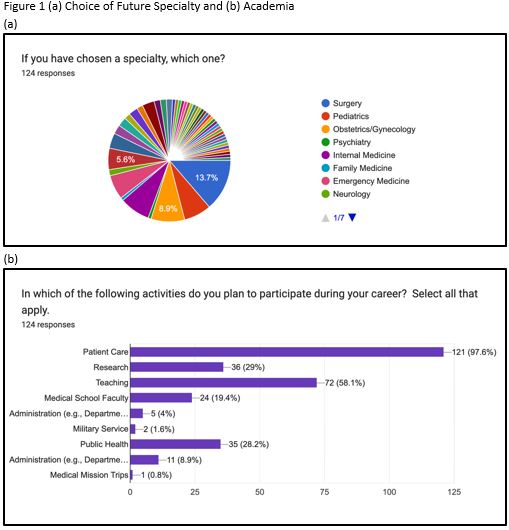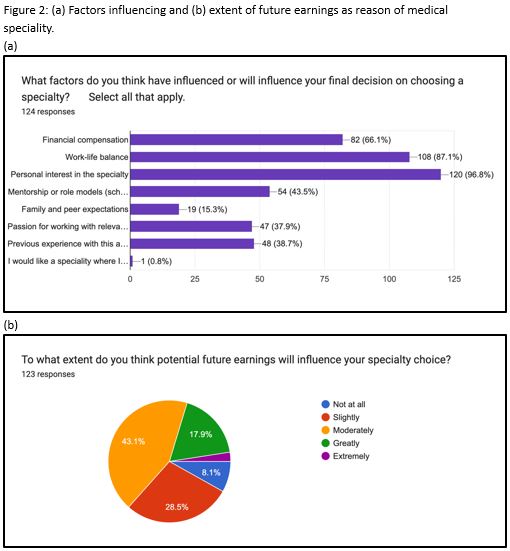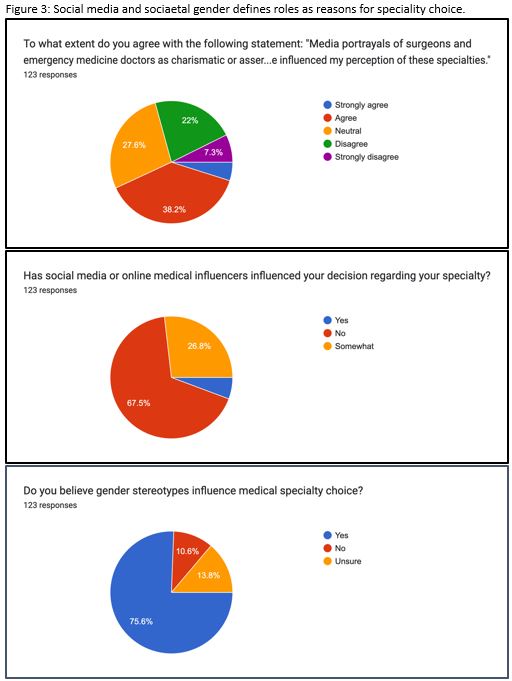General Pediatrics 1
Session: General Pediatrics 1
695 - Impact of Future Financial Remuneration and Gender-based Roles on Specialty Choice for Medical Students
Friday, April 25, 2025
5:30pm - 7:45pm HST
Publication Number: 695.5224
Divya Rana, UTHSC, Memphis, TN, United States; Camryn Coley, University of Tennessee Health Science Center College of Medicine, Jackson, TN, United States
- DR
Divya Rana, MD (she/her/hers)
Associate Professor
UTHSC
University of Tennessee Health Science Center
Memphis, Tennessee, United States
Presenting Author(s)
Background: Pediatricians are highly regarded globally for their role in children's care. The American Academy of Pediatrics (AAP) underscores their importance in advocating for children's health through public health initiatives, policy-making, and continuity of care. Despite this, there is a decline in MD graduates choosing pediatrics training programs. This has led to discussions about improving training programs and making the profession more attractive to medical graduates.
Objective: This study hypothesized that financial reimbursements and societal gender-defined roles significantly influence medical students' specialty choices. It also explored the impact of social media and influencers on these decisions. An anonymous survey was distributed to medical students at the University of Tennessee College of Medicine.
Design/Methods: An anonymous survey was distributed to medical students at the University of Tennessee College of Medicine program.
Results: A total of 124 responses were obtained (18% response rate), with 65% from female students. Among respondents, 96% were in-state tuition payers, and 68% carried educational debt. Future specialty choices spanned various fields, with notable interest in academic and public health paths (Figure 1). A significant 63% reported that potential future earnings affect their specialty decisions (Figure 2), while 61% indicated that low pay deters them from choosing their preferred specialty. Additionally, 76% believed that gender stereotypes influenced their choice, 60% cited culture and societal norms as impactful, and 33% noted the influence of social media and online influencers (Figure 3). Furthermore, 56% of respondents felt unprepared for financial planning and achieving life balance during training. Among those interested in pediatrics, 89% emphasized the importance of clinical rotation exposure. Suggested strategies for increasing interest in pediatrics included better compensation aligned with workload, more pediatric-focused lectures, and greater exposure to pediatric subspecialties.
Conclusion(s): Financial burden and future earnings significantly deter medical students from choosing pediatrics. To address this, incorporating more pediatrics-focused education within training programs is essential. Social media and influencers could shape students' specialty choices positively. Efforts should discourage gender-based choices, ensuring alignment with personal passions and preferences for a balanced distribution across fields..
Figure 1 (a) Choice of Future Specialty and (b) Academia

Figure 2: (a) Factors influencing and (b) extent of future earnings as reason of medical speciality

Figure 3: Social media and sociaetal gender defines roles as reasons for speciality choice


